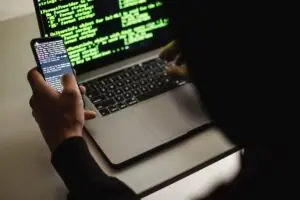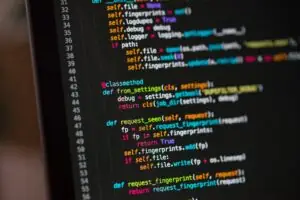In the programming field, ‘syntax’ holds the utmost importance. It refers to the set of rules that defines the combinations of symbols that are considered to be correctly structured programs in a programming language.
Much like grammar in a spoken language, programming syntax dictates how code must be written for it to be understood and executed by a compiler or interpreter. This adherence to syntax rules ensures that programmers can write code that not only runs correctly but is also readable and maintainable. Syntax varies significantly across different programming languages, making it a fundamental aspect for programmers to grasp when learning a new language.
The Role of Syntax in Different Programming Languages
The world of programming is diverse, with languages like Java, C++, JavaScript, Python, and C, each having its unique syntax. For instance, a C program demands a specific syntax that differs from what is required in JavaScript or Python.
This diversity in programming languages highlights the need for programmers to be versatile and understand the syntax rules specific to each language they use. Syntax in these languages encompasses everything from how variables are declared to how loops and conditional statements are structured. It’s not just about writing code that works; it’s about adhering to the syntax rules of the programming language to ensure clarity and efficiency.
Syntax Rules and Their Importance
Syntax rules are not just arbitrary restrictions but serve several key purposes in programming. Firstly, they establish a standard that ensures code is readable by other programmers, which is crucial in collaborative environments. Adhering to these rules also helps in avoiding errors; for example, forgetting a semicolon at the end of a statement in languages like C or Java can lead to syntax errors. Furthermore, understanding syntax rules is essential for writing quality code. These rules help in maintaining a clean codebase, free from ‘spaghetti code’, which is code that is complex and tangled due to poor structure.
So overal, following a proper programming syntax:
- Ensures code readability and maintainability.
- Helps avoid syntax errors and improves code quality.
Programming Syntax is More Than Just Rules
While understanding the basic syntax conventions is crucial, programming syntax is more than just following rules. It encompasses a deeper understanding of how a given language structures its code and executes instructions. For example, in C, the use of brackets and semicolons is not just a stylistic choice but a fundamental aspect of how the program is parsed and executed. Similarly, in languages like Python, indentation plays a critical role in defining code blocks. This deeper understanding enables programmers to write more efficient and effective code.
Common Syntax Elements Across Languages
Despite the differences in syntax among various programming languages, there are common elements that many share:
- Most languages use variables, and while the syntax for declaring them might differ, the concept remains the same.
- Loops and conditional statements also follow similar logical structures across languages, even though the specific syntax might vary.
Recognizing these common elements can make it easier for programmers to learn new programming languages, as they can relate new syntax rules to what they already know.
The Challenge of Syntax for Programmers
One of the challenges faced by programmers, especially when transitioning between languages, is mastering the different syntax rules. Each programming language has its nuances – for example, while Python emphasizes readability and uses indentation, languages like C and Java rely more heavily on semicolons and braces. This can be particularly challenging when dealing with programming languages that have more rigid or complex syntax requirements. However, this challenge also underscores the importance of learning and understanding the underlying principles of programming syntax.
Conclusion
In conclusion, syntax in programming is a critical component that programmers must master. It is not just about memorizing rules; it’s about understanding the structure and logic that underlies a programming language. Whether dealing with a C program, a Python script, or JavaScript code, a firm grasp of syntax rules is essential for writing quality code that is readable, maintainable, and efficient. As the world of technology continues to evolve, so too does the complexity and variety of programming languages, making the understanding of syntax an ever-important skill for programmers.
FAQ
Follow us on Reddit for more insights and updates.





Comments (0)
Welcome to A*Help comments!
We’re all about debate and discussion at A*Help.
We value the diverse opinions of users, so you may find points of view that you don’t agree with. And that’s cool. However, there are certain things we’re not OK with: attempts to manipulate our data in any way, for example, or the posting of discriminative, offensive, hateful, or disparaging material.